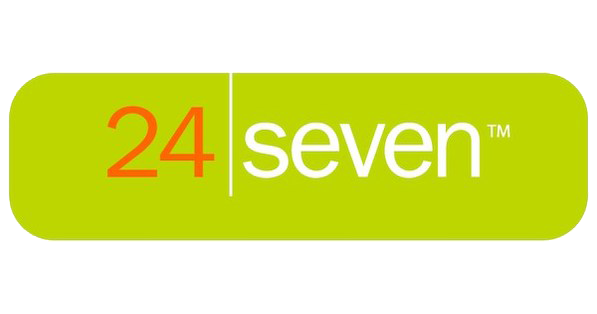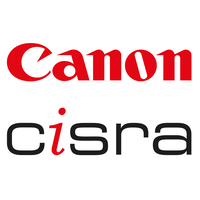Java is a versatile and widely adopted programming language that offers a robust platform for developing enterprise-level web applications. It provides a scalable and portable environment, making it suitable for a wide range of industries and applications. Here, we will explore the significance of Java technology and how WNPL utilizes it to develop powerful and reliable web solutions.
The Significance of Java Technology
Java technology offers numerous benefits for web application development. Here are key reasons why Java technology is important:
- Platform Independence:
Java's "write once, run anywhere" principle allows applications to be developed on one platform and run on any Java-enabled device or operating system. This portability makes Java an ideal choice for building cross-platform web applications.
- Scalability and Performance:
Java's robust architecture and automatic memory management contribute to its scalability and performance capabilities. It can handle high loads and complex applications efficiently, making it suitable for enterprise-level web solutions.
- Rich Ecosystem and Libraries:
Java boasts a vast ecosystem with a wide range of libraries and frameworks. These libraries provide pre-built functionalities and components that expedite development and enhance productivity.
- Enterprise-Grade Security:
Java technology has built-in security features, including secure class loading, bytecode verification, and cryptography APIs. This makes Java applications inherently secure and helps protect against common security vulnerabilities.
- Support for Multithreading:
Java's support for multithreading allows for concurrent execution, enabling developers to build highly responsive and efficient web applications that can handle multiple user requests concurrently.
Java Development Services by WNPL
At WNPL, we specialize in Java development, leveraging the power of the language to build scalable and robust web applications. Our experienced development team has extensive expertise in the following Java technologies:
- Java/J2EE:
We utilize Java and Java Enterprise Edition (J2EE) to develop enterprise-level web applications. J2EE provides a comprehensive set of APIs and frameworks for building scalable and distributed applications, incorporating features such as servlets, JavaServer Pages (JSP), Enterprise JavaBeans (EJB), and Java Persistence API (JPA).
- Spring Framework:
We utilize the Spring Framework, a popular Java framework, to develop enterprise-grade web applications. Spring offers a wide range of modules and features, including dependency injection, aspect-oriented programming, and support for building RESTful web services.
- Hibernate:
We leverage Hibernate, an object-relational mapping (ORM) framework, to simplify database access and management in Java applications. Hibernate provides a high-level and intuitive API for interacting with relational databases, making data persistence and retrieval more efficient.
- JavaServer Faces (JSF):
We utilize JSF, a component-based web framework, to build user interfaces for Java web applications. JSF provides a rich set of UI components, event handling mechanisms, and support for server-side validation, allowing for the rapid development of user-friendly web interfaces.
- Integration with Java EE Application Servers:
We integrate Java web applications with Java EE application servers, such as Apache Tomcat, JBoss, or IBM WebSphere. These application servers provide a runtime environment for deploying and managing Java applications, ensuring scalability, reliability, and efficient resource utilization.
- RESTful Web Services:
We develop RESTful web services using Java technologies, such as JAX-RS and the Spring Framework. RESTful services enable seamless integration with other systems and platforms, facilitating data exchange and interoperability.
- Legacy Java Application Modernization:
We assist businesses in modernizing their existing Java applications to leverage the latest technologies and frameworks. We migrate legacy applications to newer versions of Java or re-architect them using modern Java frameworks to improve performance, scalability, and maintainability.
- Custom Java Development:
We offer custom Java development services to build tailored web applications that meet your specific business requirements. Our team works closely with you to understand your needs and develop a solution that aligns with your objectives.
By leveraging our Java development services, you can build scalable, robust, and high-performance web applications that cater to your business needs. Our expertise in Java technologies empowers us to deliver solutions that adhere to industry best practices, security standards, and enterprise-level requirements.
Tools and Frameworks employed
When it comes to developing web applications using Java Technology, WNPL harnesses a wide range of tools and frameworks to create robust and feature-rich solutions. These tools and frameworks enable our developers to streamline the development process, enhance productivity, and deliver high-quality web applications.
Here are some of the key tools and frameworks we employ:
- Eclipse:
Eclipse is a popular integrated development environment (IDE) for Java development. It provides a comprehensive set of tools, including a code editor, debugger, and build automation features. Eclipse offers a rich development experience, making it easier for our developers to write, debug, and test Java web applications.
- Java Development Kit (JDK):
The Java Development Kit (JDK) is the primary toolkit for Java development. It includes the Java compiler, runtime environment, and libraries necessary for developing Java applications. Our developers utilize the JDK to write and compile Java code for web applications.
- Spring Framework:
The Spring Framework is a widely adopted Java framework for building enterprise-grade web applications. It provides a comprehensive set of features, including inversion of control, dependency injection, and aspect-oriented programming. We leverage the Spring Framework to develop scalable and modular Java web applications.
- Hibernate:
Hibernate is an object-relational mapping (ORM) framework for Java. It simplifies database interactions by mapping Java objects to database tables, allowing developers to work with objects instead of SQL queries. Our team utilizes Hibernate to handle database operations and improve productivity.
- Apache Struts:
Apache Struts is a popular web application framework based on the Model-View-Controller (MVC) architectural pattern. It provides a structured approach to building web applications, promoting separation of concerns and reusability. We leverage Apache Struts to develop scalable and maintainable Java web applications.
- JavaServer Faces (JSF):
JavaServer Faces (JSF) is a Java web application framework that simplifies the development of user interfaces for web applications. It offers a component-based approach and provides features such as event handling and data validation. Our developers utilize JSF to create interactive and user-friendly Java web applications.
- Apache Tomcat:
Apache Tomcat is an open-source web server and servlet container that allows for hosting Java web applications. It provides a runtime environment for executing Java servlets and JavaServer Pages (JSP). We utilize Apache Tomcat for deploying and running Java web applications.
- Maven:
Maven is a build automation and dependency management tool for Java projects. It simplifies the process of building, testing, and deploying Java applications by managing project dependencies and providing a consistent project structure. Our team uses Maven to streamline the build process and manage project dependencies.
- Git:
Git is a distributed version control system that enables our team to manage source code efficiently. It provides features such as branching, merging, and collaborative development, ensuring code integrity and facilitating collaboration among developers.
- Jenkins:
Jenkins is a popular open-source automation server that supports continuous integration and continuous delivery (CI/CD) pipelines. It automates the build, test, and deployment processes, enabling our team to deliver high-quality Java web applications efficiently.
- Apache Kafka:
Apache Kafka is a distributed streaming platform that enables the building of real-time data streaming applications. It provides scalable, fault-tolerant, and high-performance messaging capabilities. We utilize Apache Kafka for implementing event-driven architectures and building real-time communication features in Java web applications.
- Apache Camel:
Apache Camel is an open-source integration framework that facilitates the integration of different systems and technologies. It provides a set of predefined components and connectors for connecting various systems, simplifying the integration process. We leverage Apache Camel to build seamless integration between different modules and external systems in Java web applications.
- Spring Boot:
Spring Boot is a lightweight framework that simplifies the development of Java applications by providing opinionated configurations and convention-over-configuration principles. It eliminates boilerplate code and streamlines the application setup, allowing for rapid development and deployment. Our developers use Spring Boot to build Java web applications with minimal configuration and maximum productivity.
- JUnit:
JUnit is a widely used unit testing framework for Java applications. It provides a set of annotations, assertions, and test runners to write and execute unit tests. We employ JUnit to ensure the quality and reliability of our Java web applications through comprehensive and automated testing.
- Selenium:
Selenium is an open-source framework for automating web browsers. It enables the creation of automated tests for web applications, helping ensure the functionality and performance of the application across different browsers and platforms. We use Selenium for automated testing of Java web applications to improve test coverage and maintain high-quality standards.
- Apache Lucene:
Apache Lucene is a powerful search engine library for Java applications. It provides indexing and searching capabilities, allowing for efficient and accurate retrieval of information from large datasets. We utilize Apache Lucene to implement robust search functionalities in Java web applications.
- Apache Solr:
Apache Solr is a highly scalable search platform built on top of Apache Lucene. It provides advanced search features, faceted search, and near-real-time indexing capabilities. We leverage Apache Solr for building high-performance search engines in Java web applications.
- Gradle:
Gradle is a build automation tool that combines the power of Apache Ant and Apache Maven. It offers a flexible and declarative approach to building, testing, and deploying Java applications. Our team utilizes Gradle to automate the build process and manage dependencies in Java web applications.
- Log4j:
Log4j is a logging framework for Java applications. It provides a flexible and configurable logging mechanism to capture and analyze application logs. We integrate Log4j into our Java web applications to facilitate troubleshooting, performance analysis, and monitoring.
- Docker:
Docker is a containerization platform that allows for the creation and deployment of lightweight, isolated containers for applications. It provides a consistent environment for running Java web applications across different systems, simplifying the deployment process and improving scalability. We use Docker to package and deploy Java web applications with ease.
- Hibernate Search:
Hibernate Search is an extension of the Hibernate ORM framework that enables full-text search capabilities within Java applications. It integrates with Apache Lucene to provide efficient and accurate searching of indexed data. We utilize Hibernate Search to implement advanced search functionalities in Java web applications.
- Spring Security:
Spring Security is a robust framework for implementing authentication and authorization mechanisms in Java applications. It provides a comprehensive set of features to secure web applications, including user authentication, access control, and encryption. Our developers leverage Spring Security to ensure the security and protection of sensitive data in Java web applications.
- Thymeleaf:
Thymeleaf is a modern server-side Java template engine that allows for the creation of dynamic web pages. It offers a natural templating syntax and supports seamless integration with Spring Framework. We use Thymeleaf to generate dynamic and interactive user interfaces in Java web applications.
- Apache Commons:
Apache Commons is a collection of reusable Java components and libraries that provide various utility functions. It includes libraries for file handling, string manipulation, data validation, and more. Our team utilizes Apache Commons to streamline development tasks and enhance the functionality of Java web applications.
- Apache Cassandra:
Apache Cassandra is a highly scalable and distributed NoSQL database that provides high availability and fault tolerance. It is suitable for handling large volumes of data with low latency requirements. We employ Apache Cassandra for storing and managing data in Java web applications that require scalable and highly available database solutions.
- Apache ActiveMQ:
Apache ActiveMQ is a popular message broker that enables reliable messaging between distributed systems. It supports various messaging patterns such as publish-subscribe and point-to-point messaging. We leverage Apache ActiveMQ for asynchronous communication and event-driven architectures in Java web applications.
- Apache CXF:
Apache CXF is an open-source web services framework that supports the development and deployment of SOAP and RESTful web services. It provides a flexible and comprehensive set of tools for building and consuming web services in Java. Our team utilizes Apache CXF to enable seamless integration and interoperability with external systems in Java web applications.
- Vaadin:
Vaadin is a Java web framework that simplifies the development of rich and interactive user interfaces. It offers a comprehensive set of UI components and a declarative programming model, allowing developers to create responsive and modern web applications. We use Vaadin to deliver visually appealing and user-friendly Java web interfaces.
- Apache POI:
Apache POI is a Java library that provides APIs for manipulating Microsoft Office documents, including Excel, Word, and PowerPoint files. It allows for the creation, reading, and modification of these documents programmatically. We employ Apache POI to handle document generation and processing in Java web applications.
- Spring Boot Actuator:
Spring Boot Actuator is a module of the Spring Boot framework that provides various production-ready features for monitoring and managing Java applications. It offers endpoints for health checks, metrics, logging, and more. We integrate Spring Boot Actuator to facilitate application monitoring and diagnostics in Java web applications.
Further reading
- "Head First Java" by Kathy Sierra and Bert Bates:
This book offers a beginner-friendly introduction to Java programming, covering key concepts, syntax, and object-oriented programming principles.
- "Effective Java" by Joshua Bloch:
This book provides effective techniques and best practices for writing high-quality, efficient Java code. It covers topics such as class design, concurrency, exception handling, and performance optimization.
- "Java: A Beginner's Guide" by Herbert Schildt:
This book serves as a comprehensive introduction to Java, covering the basics of Java programming, object-oriented concepts, and key libraries and APIs.
- "Java Concurrency in Practice" by Brian Goetz et al.:
This book focuses on concurrent programming in Java, covering topics such as thread management, synchronization, locks, and parallel programming.
- "Java Performance: The Definitive Guide" by Scott Oaks:
This book explores techniques for optimizing the performance of Java applications, covering topics such as JVM internals, garbage collection, memory management, and profiling.
- "Spring in Action" by Craig Walls:
This book provides an in-depth guide to Spring Framework, a popular Java framework for building enterprise web applications. It covers topics such as dependency injection, MVC, data access, and testing.
- "Java Persistence with Hibernate" by Christian Bauer and Gavin King:
This book covers Java Persistence API (JPA) and Hibernate, a widely used ORM framework for Java applications. It covers topics such as object-relational mapping, query optimization, and transaction management.
- "Clean Code: A Handbook of Agile Software Craftsmanship" by Robert C. Martin:
This book focuses on writing clean, readable, and maintainable code in Java. It covers principles, patterns, and practices for improving code quality and software design.
- "JavaServer Faces: Introduction by Example" by Josh Juneau et al.:
This book offers a comprehensive introduction to JavaServer Faces (JSF), a Java web application framework. It covers topics such as UI components, event handling, data binding, and validation.
- "Java EE 8 and Microservices" by David R. Heffelfinger:
This book explores Java EE 8 and microservices architecture, covering topics such as containerization, RESTful web services, messaging, and scalability.









